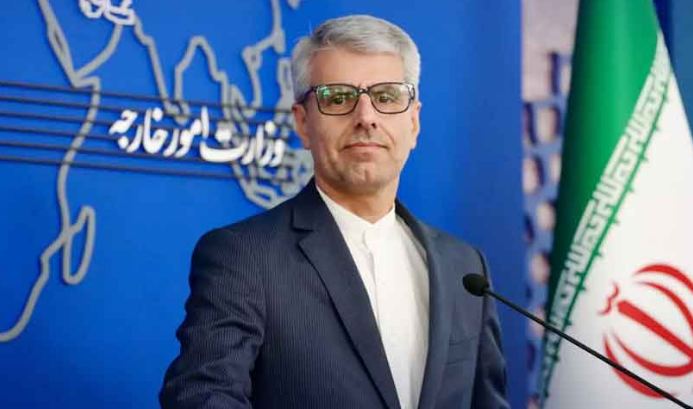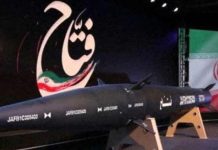Tehran, JUN 25: Iran’s Foreign Ministry spokesman, Esmaeil Baghaei, has rejected claims that US and Israeli strikes completely destroyed the country’s nuclear infrastructure, reaffirming Tehran’s commitment to its peaceful nuclear ambitions.
In an interview with Al Jazeera, Baghaei asserted that Iran’s right to pursue nuclear energy for peaceful purposes remains intact under the Nuclear Non-Proliferation Treaty (NPT). “Iran has every right under the NPT to use nuclear energy for peaceful purposes, and it will continue to preserve that right under any circumstances,” he said.
When asked about damage to nuclear sites and the status of Iran’s enriched uranium stockpiles, Baghaei downplayed the issue, stating that the real concern should be global condemnation of what he called the US’s “unlawful aggression.”
“This was a serious blow to diplomacy, international law, and basic ethics,” Baghaei added. “It’s troubling that many are focusing on the extent of the strikes instead of condemning the aggression itself.”
Iran’s parliament limits IAEA access
Baghaei also confirmed that Iran’s parliament had passed legislation to suspend—though not completely end—cooperation with the International Atomic Energy Agency (IAEA). He clarified that the new law seeks to establish conditions for future cooperation, such as ensuring the safety of Iranian scientists and facilities, and upholding Iran’s rights under the NPT.
“If we’re to remain a responsible NPT member, we must also be afforded the rights guaranteed under it,” he said.
He acknowledged that Iranian nuclear facilities had sustained significant damage from repeated attacks but said technical agencies like the Atomic Energy Organization of Iran are addressing the matter.
“Yes, our nuclear installations have been badly damaged. That’s for sure because [they have] come under repeated attacks. I have nothing to add on this issue because it’s a matter of technical issue, he remarked.
Iran sceptical of US intentions
Commenting on US President Donald Trump’s remarks about potentially restoring diplomatic relations, Baghaei expressed doubt, citing Washington’s contradictory actions. “They talk about diplomacy while giving a green light to Israeli aggression. How can trust be rebuilt under such circumstances?” he asked.
Still, Baghaei said Iran believes diplomacy should never be completely ruled out. He revealed that Iran had continued limited diplomatic engagement through intermediaries even during the recent conflict but emphasized that national security remains Tehran’s top priority.
Ceasefire brokered through Qatar
Baghaei confirmed that Iran agreed to a ceasefire with Israel after mediation by Qatar, which had been approached by the United States. Despite suffering heavily, Baghaei said, the Iranian people had demonstrated resilience.
“Our citizens were victims of war crimes committed by Israel, but they stood firm in defending our sovereignty,” he said. Baghaei also said he was personally “really unhappy” about “any inconvenience” caused to “our Qatari sisters and brothers” following Iran’s missile strike on Al Udeid, the US base near Doha. He reiterated that the attack was directed solely at American military assets and had “nothing to do with Qatar,” a nation Iran “deeply respects.”
US doubles down on strikes’ impact
Meanwhile, US Secretary of State Marco Rubio offered a more tempered view of the recent strikes, acknowledging they did not completely destroy Iran’s Fordow, Natanz, and Isfahan sites. However, he insisted the strikes had substantially delayed Iran’s nuclear ambitions.
“They’re much further away from developing a nuclear weapon than they were before,” Rubio told POLITICO at the NATO summit in the Netherlands. He dismissed early media reports suggesting the damage was minimal, calling them incomplete and politically motivated.
“The full picture is still emerging, and people should avoid jumping to conclusions,” Rubio said.
Despite US intelligence assessments suggesting the strikes may have delayed Iran’s program by only a few months, Rubio stressed that the president’s decisive action had sent a powerful signal. He added that Washington is not pursuing regime change in Iran but will act decisively if Tehran continues to pursue nuclear weapons.
“President Trump’s instincts are strong, and once he makes a decision, it’s our job to support that direction,” Rubio concluded.
















